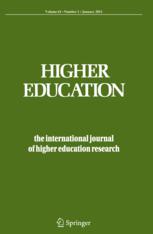Kessels, J.W.M. & Kwakman. K. (2007). Interface: Establishing knowledge links between higher vocational education and business. Higher Education. An International Journal of Higher Education and Educational Planning. 54 (5) 689-703

Kessels, J.W.M. & Kwakman. K. (2007). Interface: Establishing knowledge links between higher vocational education and business. Higher Education.An International Journal of Higher Education and Educational Planning. 54 (5) 689-703 (ISSN: 0018-1560)
Abstract
The emerging knowledge society is one of the main reasons that underlie the appearance of the interactive combination of learning and working in higher education. It is argued that the coop education system and work-based learning can become important instruments in integrating learning and working only if coop education is organized as a knowledge network in which universities and business closely cooperate. Based on this community perspective on coop education, a literature study and secondary analysis of evaluation and policy studies with relation to coop education are performed, in order to distinguish drivers for the development of coop higher education as well as factors that inhibit the acceptance of coop higher education. To further the conceptualisation of the coop system, the cooperation between a university of professional education and a number of business partners in a particular project (the Interface project) has been explored and examined. It is concluded that the further development of a system of coop higher education requires a number of advancements among others: further conceptualisation of this specific type of higher education, a quality assurance system that makes explicit what we mean by academic standards and how students can meet these standards, and a clear description of responsibilities and obligations of the various parties involved. When it comes to the development of sustainable knowledge networks in which institutions of higher education and companies participate the design of a coop curriculum can be very helpful, but cultural differences still need to be overcome.
